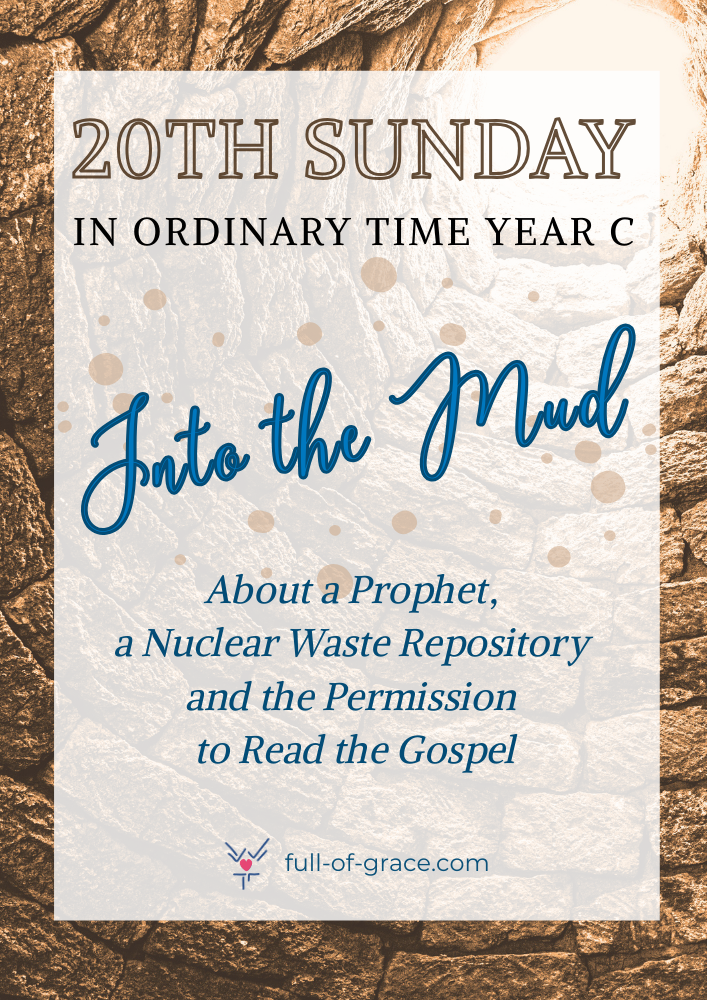Reflection for the 20th Sunday in Ordinary Time Year C
What if the most dangerous thing in the world isn’t nuclear waste that stays lethal for 100,000 years, but a Gospel that stays troublesome for 2,000 years and counting? Join me as we follow a prophet into the mud, learn warning signs from nuclear scientists, and discover why sometimes the person who saves us is the last one we’d expect.
Jesus the Troublemaker
As I opened the readings for this Sunday, using the Missal prepared for the Irish church, I was immediately struck by the beauty of the collect prayer, again reminding me that I gather this Sunday with the community of the church to call upon ancient promises and see them fulfilled in my life.
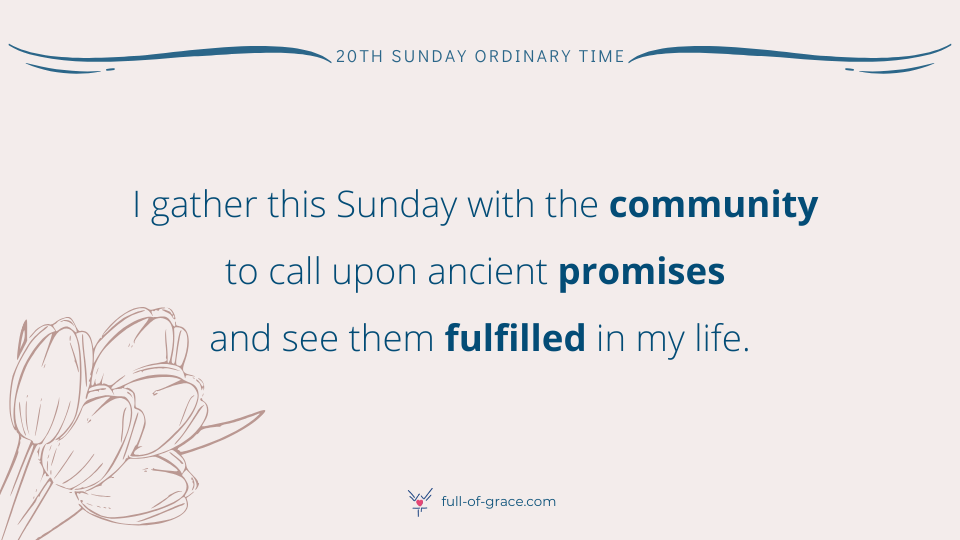
But then came the first reading, and I felt a storm going through my head—a whirlwind of confusion. So many names. Who are all these people? Where are we? The Psalm gave me wings to soar on heights, and I highlighted every line of that beautiful poem. The second reading felt like unnecessary multiplication of words that basically say the same truth. And the Gospel, again, slapped me in my face. I’m already used to Jesus troubling me with his Gospel, so this time I just sighed: “Here we go again—learning to love Jesus the Troublemaker.”
My curiosity was piqued, however, by the first reading, and so I went back to Jeremiah, trying to figure out where we are in the story of salvation. I found myself lost in a sea of unfamiliar names and diplomatic maneuvering. I know this place. This is how I always feel when conversations turn to politics, a visceral reaction rooted in my childhood in Poland during martial law, when political discussions felt dangerous and so were hushed.
Yet in all that confusion, one sentence brought me unexpected peace: “And into the mud Jeremiah sunk.” As punishment for his disturbing speech, the prophet was thrown into the well where there was no water, only mud. And into the mud, Jeremiah sank. Suddenly, I knew where I was. I recognized this as God’s favorite moment to come with grace—when we sink into the mud.
When Prophets Become the Problem
This first reading plunges us into the murky world of politics and prophecy. We are in the sixth century before Christ: the throne of David has been passed to rulers who kept running the Chosen Nation into ever-worsening circumstances. Due to following unwise advisors, King Jehoiakim brings upon Jerusalem the wrath of a much stronger Babylonian army. The prophet calls for repentance and reforms, while the nationalists reassure the nation that God is on their side. The king is undecided which voice to follow, secretly seeks out the prophet’s insight, only to turn against the word of God the next day. Jeremiah continues to predict doom for Jerusalem, and the officials, tired of his disturbing message, eventually throw him into a cistern (well) to starve. The prophet who speaks God’s word becomes the problem, accused of disheartening the soldiers and undermining morale.
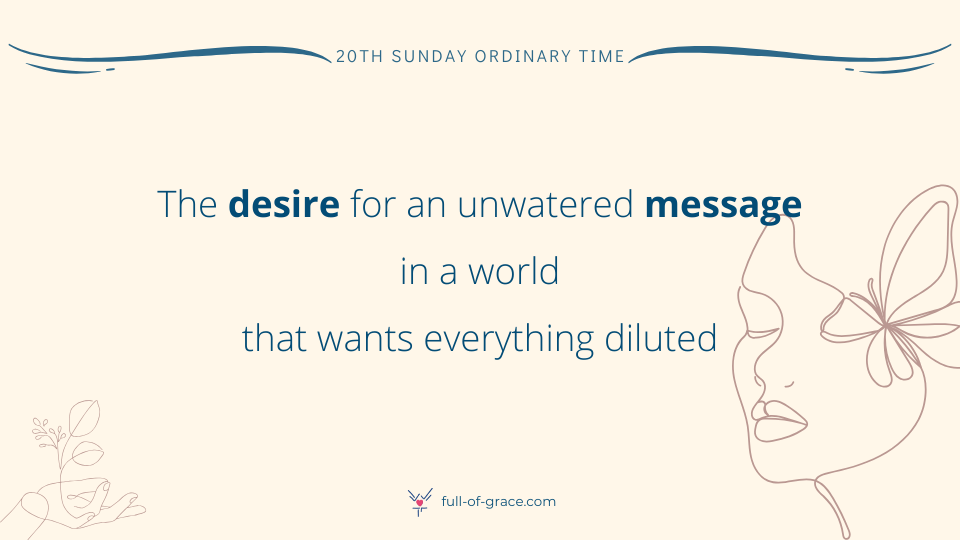
I recognize this dynamic from my own experience working for Catholic parishes in Ireland. After praying for five years to transition from corporate work to something meaningful, I finally found myself “on mission,” working for God. But I quickly discovered that even working for the church gets deeply muddled with politics. The constant tension between vision and reality, between the word of God and diocesan guidelines, between mission and the everyday politics of institutional survival—it was as exhausting as it was confusing.
Like Jeremiah, I desired an unwatered message in a world that wanted everything diluted. And as I see this experience through the lens of the first reading, two symbols stand out powerfully: the muddy well and the Ethiopian rescuer.
The Only Thing That Gets Muddy When You Water It Down
The well had no water, only mud. This becomes a beautiful metaphor for what happens when we begin to water down the word of God—the only thing in this world that becomes muddy when diluted. Jeremiah sank into a well that was supposed to hold the water of life (the symbol of his prophetic calling), yet became filled with muddy clay—a powerful symbol of the impact of our own dusty, ashy human nature when it stands in the way of God’s word. God’s message needs to be received with an open heart (as we pray in the Gospel Acclamation this Sunday). If we hold back, don’t trust the Scripture, the living water mixes with the clay of our nature and into the mud we sink.
In my Irish experience, I was constantly navigating this tension. Where in the Catholic Church do we have space to talk about what isn’t working? The Church is under so much attack that many believers feel we cannot contribute honest criticism without adding to the pile-on. Some accusations against the Church are real and valid; others are unfair and nasty. This leaves us in an impossible position—seeing problems but feeling we have no space to address them.
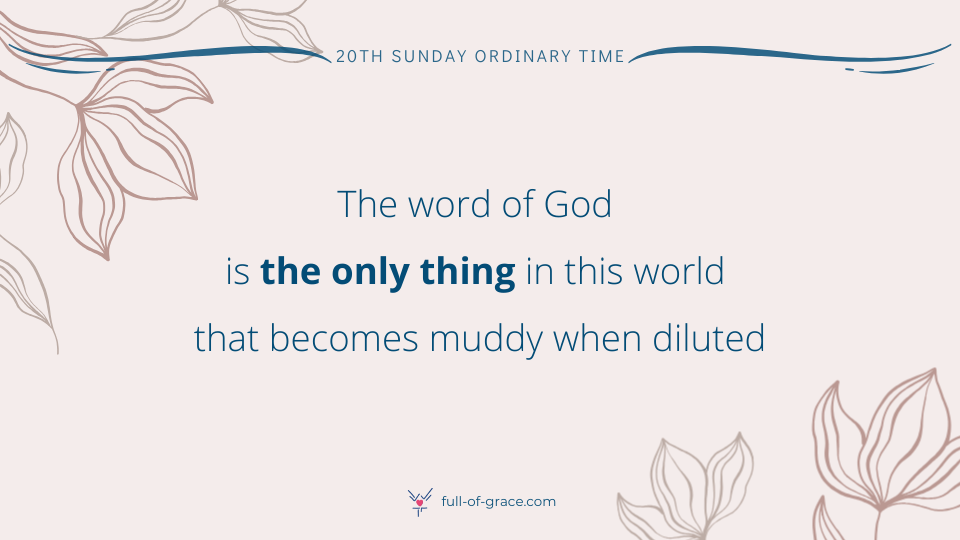
The irony is that those who should be nourished by the well of living water often reject it, while the outsider—the Ethiopian—drinks deeply and acts with compassion.
When the Outsider Becomes the Savior
The person who saves Jeremiah is an Ethiopian, a Cushite—someone outside the chosen people. This pattern runs throughout Scripture: those who “should” receive God’s word often reject it, while outsiders become the ones who actually live it out. The Ninevites repent at Jonah’s preaching. Ruth the Moabite becomes part of Jesus’ lineage. The chosen nation rejects its prophets while foreigners recognize God’s voice.
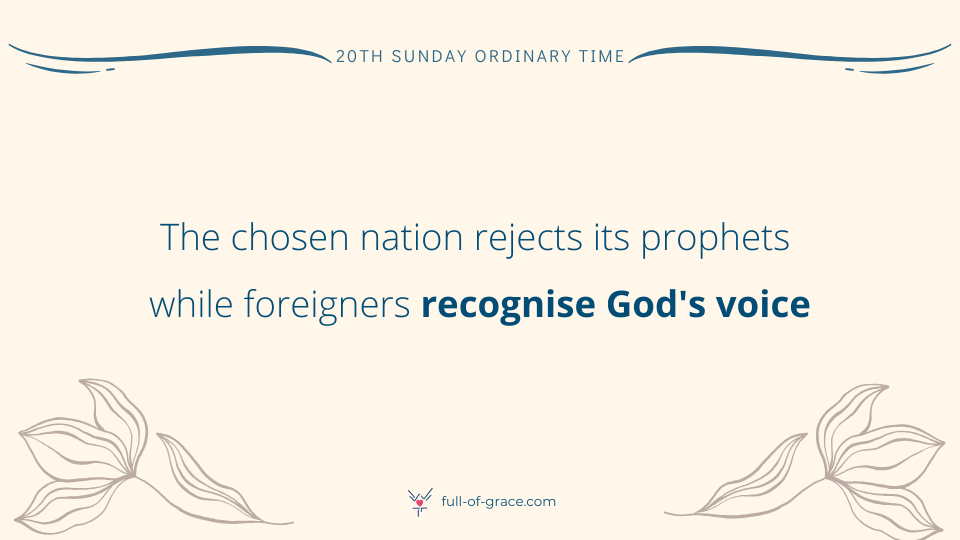
This brings me to think of Onkalo—Finland’s nuclear waste repository project. The name means “hidden” in Finnish, and it’s designed to store nuclear waste safely for 100,000 years. Scientists and linguists are working together to create warning signs for future generations, symbols that will say “Do not touch—there is death here” to civilizations thousands of years from now.
I imagine myself living 5,000 years in the future in a small village, seeing these symbols. I can’t translate them exactly, but something in my spirit says “No. This is doom. This is death.” Even if my entire village wants to dig, I would have to separate myself from that community or die with them.
Warning Signs for Future Civilizations
This changes how I read Scripture. These texts are our Onkalo project—warnings and wisdom meant to last not just 100,000 years but into eternity. The Gospel of John tells us that “In the beginning was the Word, and the Word was with God, and the Word was God,” and that this Word leads to eternal life. The way we enter relationship with Scripture truly is the difference between life and death.
Jeremiah was criticized because there was an extreme nationalist party that believed the temple’s presence guaranteed God’s protection despite the people’s corruption. Jeremiah had the courage to say, “No, the temple will not save us”—which was considered blasphemy. But he was reading the signs correctly. Religious symbols and institutions cannot save us from the consequences of injustice.
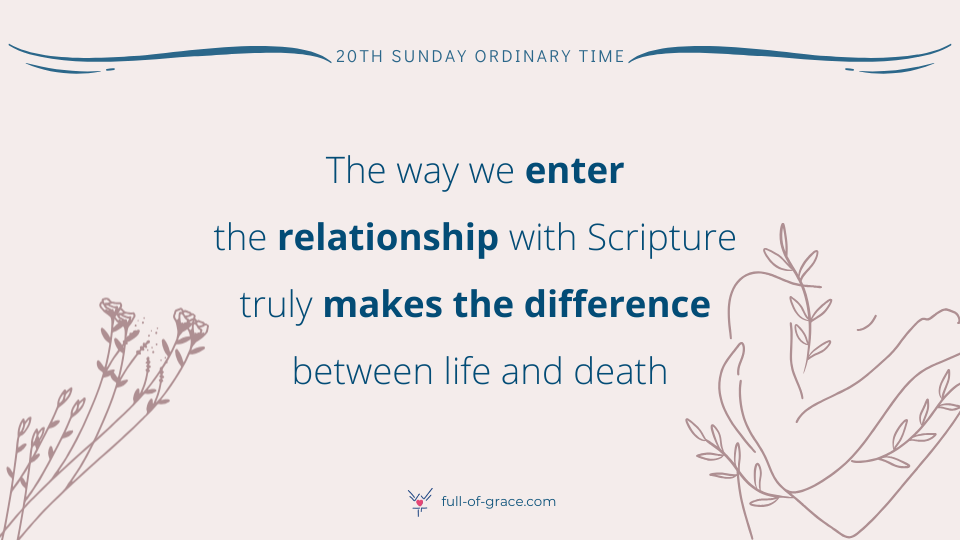
We all have moments when truth is spoken directly to our hearts, and we need the courage to present that truth. My experience working for the parishes was a constant tension between what I could see and what I was allowed to say, and where there was space to say it. Eventually, I was told personally by a priest who later became an auxiliary bishop that if the archbishop had to choose, he would always choose comfort over righteousness. That shook me. There was no calling upon the Holy Spirit to come with truth, fire, cleansing, and love. There was just a sharp cut, and a decision was made.
“I Am the Division. Not You.”
This brings us to Jesus’ difficult words in the Gospel: “I have come to bring fire to the earth, and how I wish it were blazing already… Do you suppose that I am here to bring peace on earth? No, I tell you, but rather division.”
These are hard words, but I know the one who speaks them. Jesus always shows us the way: on one hand, following him means we will find places of disagreement. We will be divided against evil. If we want to be with him, we will have to access our disagreement against what is wrong in this world.
But—and this is crucial—Jesus says, “I am the division. Not you.” He tells us there is a baptism he must still receive, and how constrained he is until it is accomplished. Even Jesus felt the pressure of holding divine truth in a fallen world, knowing it would cause division before it brought healing.
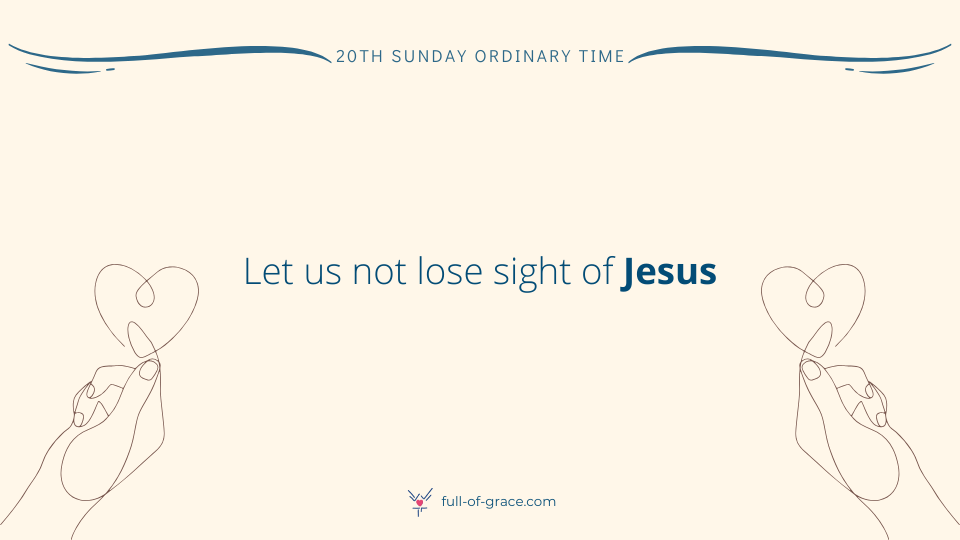
I think Jesus is saying: “You will be divided, but leave the division to me. Because in me, there will be unity. You turn away from evil, from greed, from abuse, from everything disgusting, and you focus on me.” This is what the second reading emphasizes: “Let us not lose sight of Jesus.”
Don’t Stare at the Snakes
For the last month, every Sunday reading has brought me back to the same conclusion: let us not lose sight of Jesus. I keep returning to the chosen people wandering in the desert. When they are bitten by snakes, Moses lifts up the copper serpent, and those who lift their gaze are healed.
What Jesus speaks about in the Gospel exposes our counter-intuitivity. When we are conflicted, looking at the conflict is what feels natural. We bring our snakes to prayer—everything that bites us, everything uncomfortable and disheartening. But we also need space in prayer to let go, to stop presenting God with our problems long enough to fix our hearts and minds on Jesus until everything dissolves in the presence of God.
This is like the parable of the debtor who is forgiven an enormous debt but then imprisons someone who owes him almost nothing. The letter to the Hebrews teaches me today, in tandem with the Gospel and first reading: Yes, we will be conflicted. Jesus’ presence here on earth doesn’t smooth everything out. There will be difficulties, disagreements, even division. But let it be Jesus’ fire that burns in our hearts, not our own anger.
It’s crucial that Jesus declares the division belongs to him. In the Old Testament, God declares “vengeance is mine.” In the New Testament, Jesus goes even further: “The division is mine. You keep your gaze fixed upon me, and you remain in me. You do not remain in the division that my name may cause. You remain in me.”
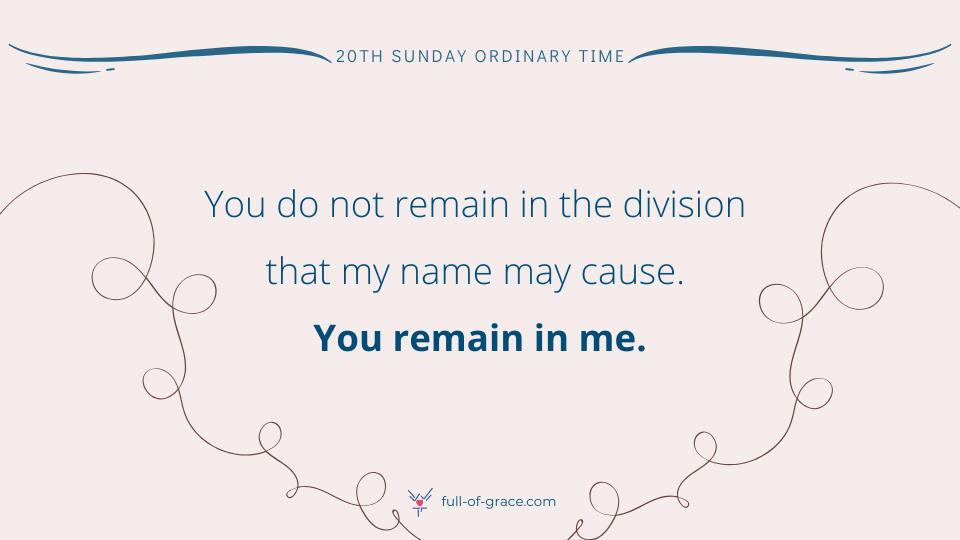
How to See Past the Fight
Only when we fix ourselves on Jesus can we see beyond the conflict. It’s only because of relationship with Jesus that despite all the disappointment and devastation of my Irish adventure—working for the church and having it dismantled by the archdiocese—I can continue with the Church. I keep going back, remain curious about the liturgical year. Take Jesus out of the equation, and that doesn’t make sense.
It’s because of holding Jesus constantly in sight that when we disagree in families, when there are conflicts and arguments and talking behind backs, we’re also able to see how we contribute to those conflicts, how we are not blameless, how we’ve messed up so many things. Seeing our own shortcomings makes it so much easier to forgive others.
Your Life-and-Death Relationship with a Book
The Onkalo metaphor gives us permission to have our own relationship with the Word—based on tradition and always connected to community, not running wild, but ultimately our own difference between life and death. We read that Word as if our life depended on it, and I truly believe it does.
Sometimes we are in the mud. Sometimes we are in the well. But from that place, we continue fixing our gaze on Jesus. Because we know the one who speaks the word, even when it looks like we’ve sunk too deep into trouble, even when what we see is disturbing. The word of God can be disturbing, but we know God—his faithfulness to promises, his mercy, his endless love.
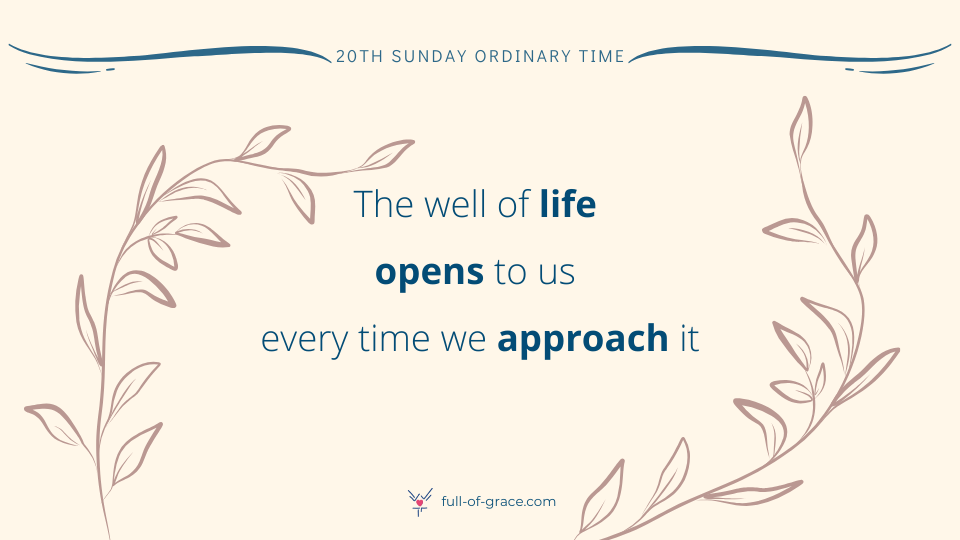
The same Jeremiah who carries such a doomed message to share is also the one who hears from God, “I chose you. I shaped you in your mother’s womb.” His calling is as difficult as it’s also a beautiful, incredible love story between God and the human being. Despite all the conspiracy and carnage, Jeremiah survives. He even becomes the last person to touch the Ark of the Covenant before it disappears from history, only to be found again in the book of Revelation. And when Jesus goes finally through that baptism he spoke of, he brings us the fullness of the Spirit. The well of life opens to us every time we approach it, even when it feels muddy, even when it seems filled with clay. Once we allow our fears and our pride to fall behind in that mud, the living water is still there to be retrieved.
Despite all the ups and downs, despite the longing I still carry for what I lost when my mission work was dismantled in Ireland, the word of God continues to take me on an incredible journey. Yes, my life looks different now, but this amazing relationship with Scripture continues—this friendship, this nourishment. Despite all the loneliness and deprivation that followed the dismantling of my mission, whenever I bring myself to relationship and friendship with the Word, I am nourished from that well of life. We are all invited to drink from that fountain of love—at least every Sunday, if not every day.
The prayer over the offerings captures this beautifully: “By offering what you have given, we may merit to receive your very self.” We offer our confusion, our mud, our sinking—and through that offering, we receive God’s very self.
Into the mud Jeremiah sank. And from the mud, grace rises.

